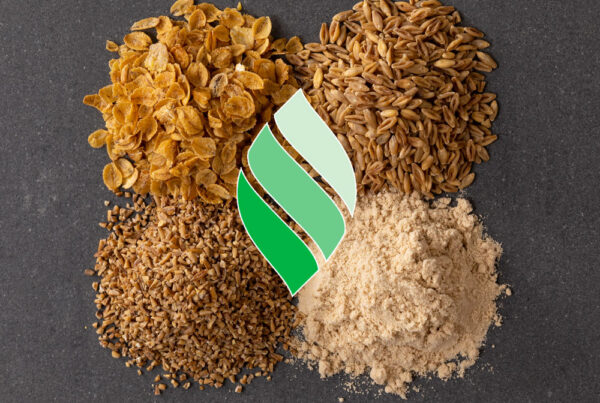February is Heart Health Month – so what can you do this month to show your heart some love?
Wholegrains for heart health
Wholegrains play a very important role in maintaining good heart health. Specifically, the fibre found in wholegrains can help lower LDL (bad cholesterol) levels – which in turn can lower your risk of heart disease. But what should you look for in terms of wholegrain foods? For a food to be a ‘wholegrain’, it must contain all parts of the grain – bran, germ and endosperm. When you’re doing your weekly grocery shopping, look for wholegrain products such as:
- Brown & black rice, rather than white rice
- Quinoa
- Wholemeal or wholegrain breads, rather than white bread
- Popcorn
- Oats
Australian supermarkets now stock a wide range of BARLEYMAX® containing foods – breads, cereals, snack bars & cookies. BARLEYMAX® is a nutritionally superior, all natural wholegrain that is high in fibre to support good heart health.
Pound the pavement for heart health
Physical activity is a critical in the recipe for maintaining good heart health. However, you may be surprised as to what contributes to your daily activity quota. Of course, exercise such as walking, yoga, swimming, cycling is important – but little tweaks, such as parking a little further away and walking to the shops or taking the stairs instead of the lift – can also help you make inroads to your daily exercise target.
The amount of physical activity that you should aim for each day depends on your age. However, as a rule, adults under the age of 65 should aim for between 2.5 – 5 hours exercise per week, split over 5 days. Half of your time should be spend exercising at a vigorous level, and the other half at a moderately intense level. Two out of the five days that you exercise should also contain weight-bearing exercise help support healthy muscles, joints and bones.
For our friends that are over 65, if you are just beginning to incorporate exercise in your life – please consult a medical professional first. should be aiming for 30 minutes of moderate exercise most days of the week – five at a minimum. It is recommended that you undertake weight bearing exercises at least two to three times per week. Most importantly, try to find an exercise program that you can follow consistently, that is kind to your body – and more than anything – makes you feel good!
You may be wondering to yourself what the difference between moderate and vigorous exercise is. Quite simply, when you’re undertaking vigorous exercise, your heart rate should be elevated to a point that you can’t comfortably maintain a conversation and said exercise at the same time. When you’re exercising at a moderate level, you’ll feel your heart rate increase, but you won’t be out of breath.
Eat well for heart health
So now we know that wholegrains, and exercise, are important elements in our quest for maintaining good heart health. But that’s part of the equation! A big part of looking after your body, and specifically your heart, comes down to what you fuel your body with. A healthy, balanced, and varied diet ensures that you’re consuming a wide range of vitamins, mineral and nutrients. Naturally – fruit, vegetables and wholegrains should make up a large part of your diet. Coupled with lean protein and healthy dairy choices (cheese, unflavoured milk and yoghurt) and a touch of healthy fats (think avocados, olives, nuts) and you’re well on your way to maintaining good heart health. Winner!
Whilst a treat every now and then is important, do your best to avoid regularly consuming foods such as chocolate, chips, lollies, fast foods and sugar-laden soft drinks. Making a conscious effort to reduce your salt consumption is also very important, as a diet high in salt can lead to the development of high blood pressure.
Better habits for heart health
Finally, healthy habits are an important element of maintaining a healthy heart. Reducing alcohol consumption, quitting smoking, and making sure you adequately manage your stress levels all make a big impact when it comes to the health of your heart. Whether it’s a hobby, a meditation practice, or something else that simply brings you joy, effective stress management can a world of difference when it comes to keeping your heart (and mind) happy.
Heart Health Month is a great opportunity to check in, assess, and set some new, heart-healthy habits for the year. Your heart will thank you for it.
Intended as general advice only. Consult your health care provider to discuss any specific concerns.
Intended as general advice only. Consult your health care professional to discuss any specific concerns.




